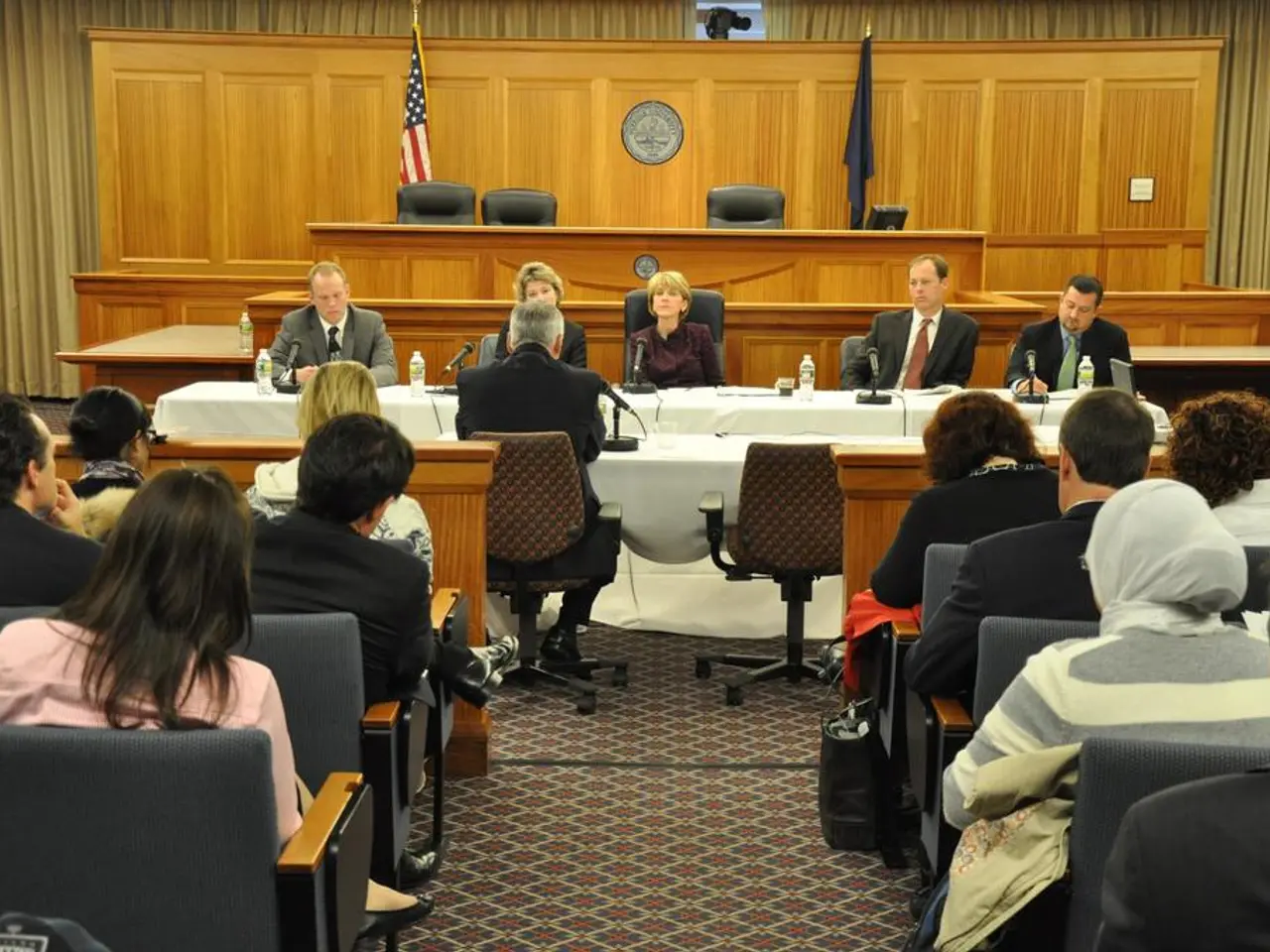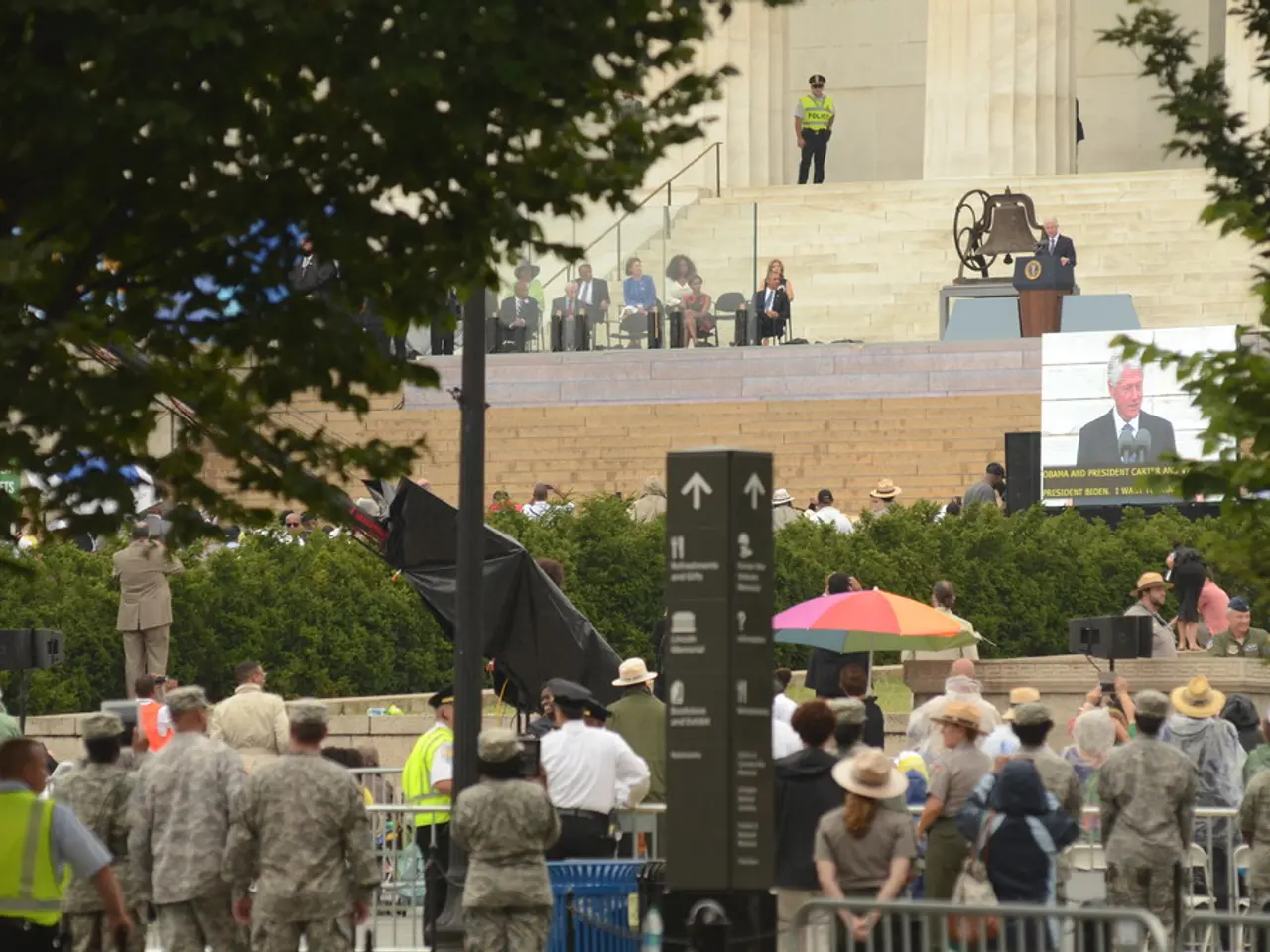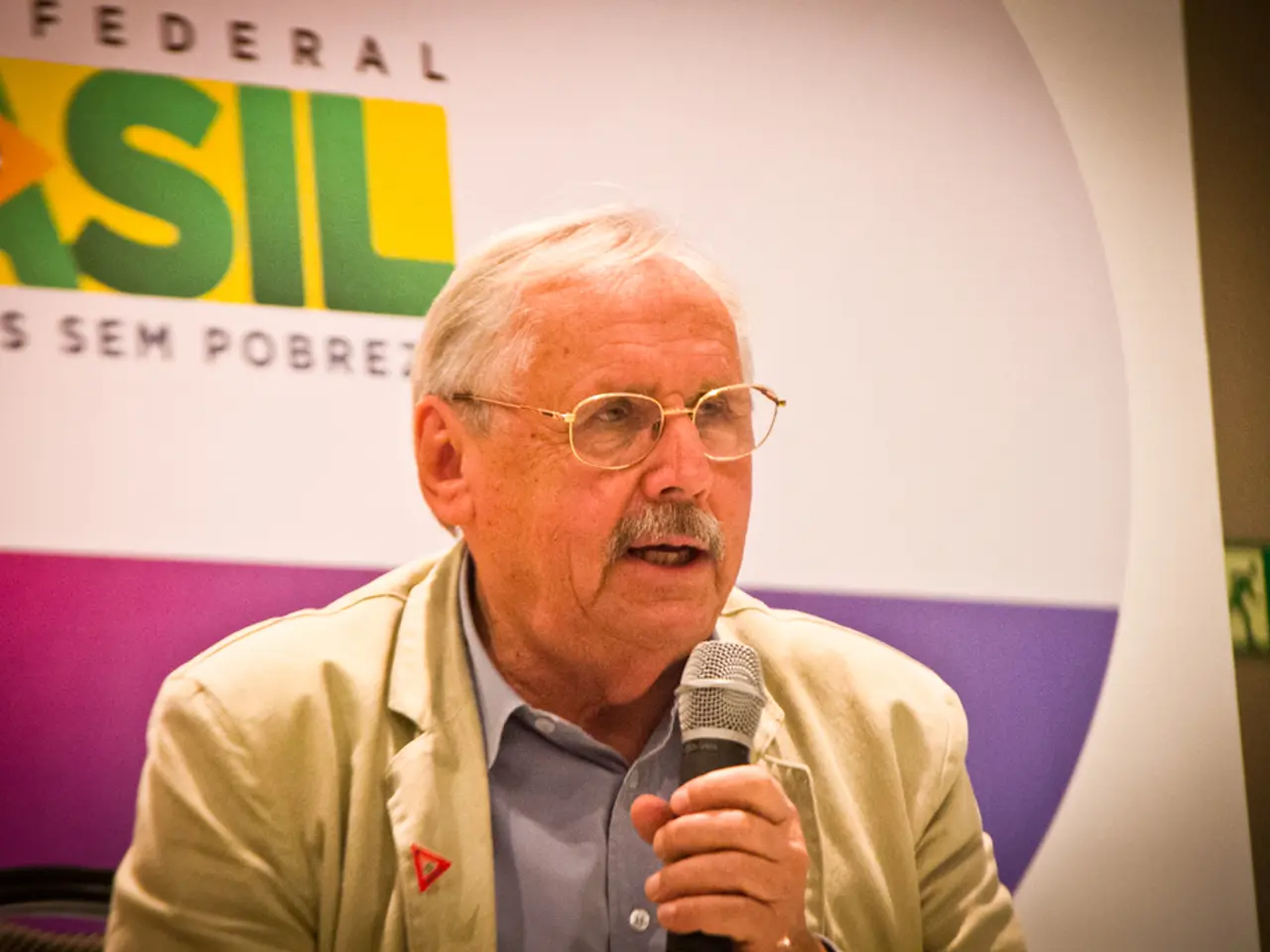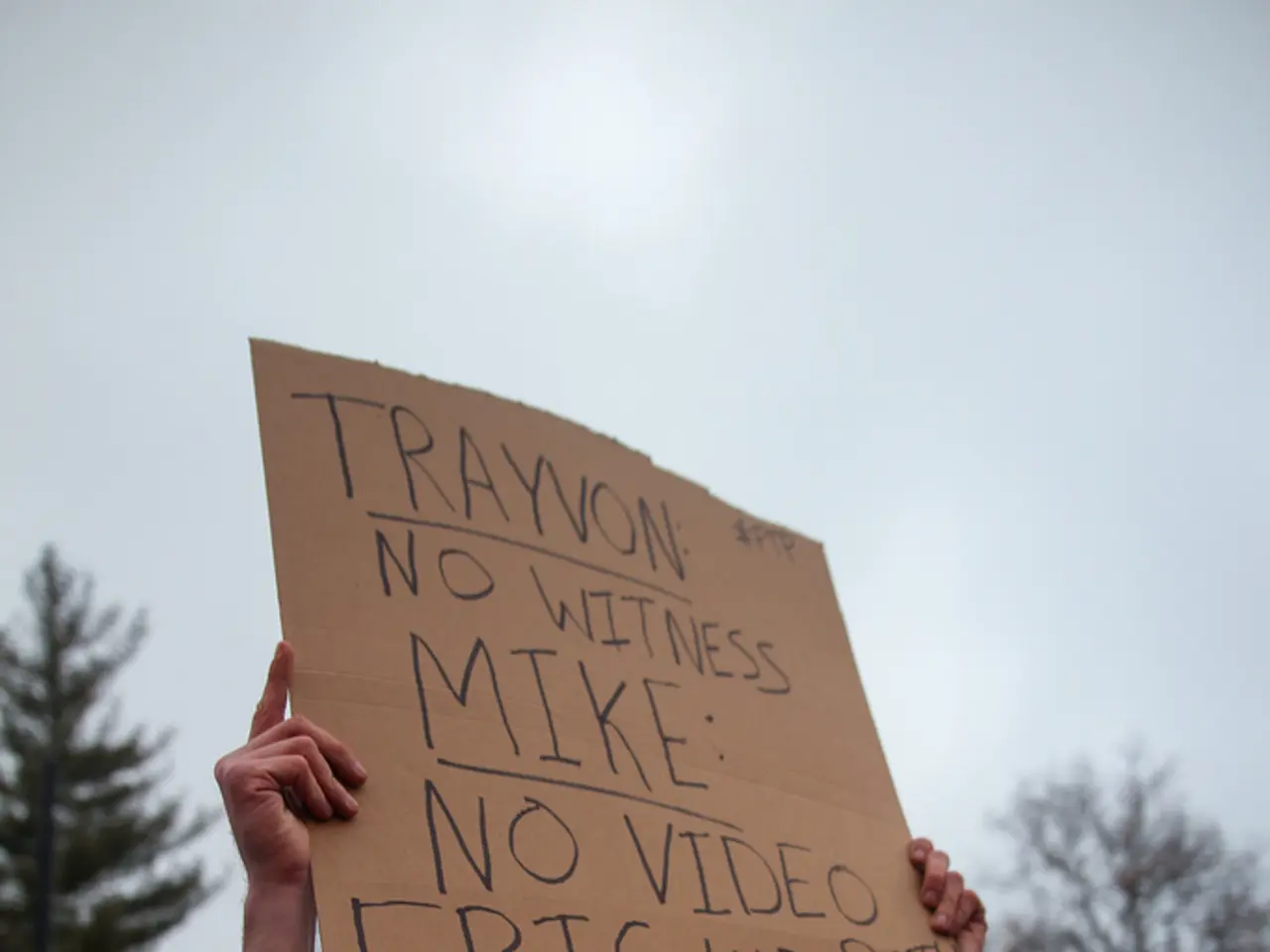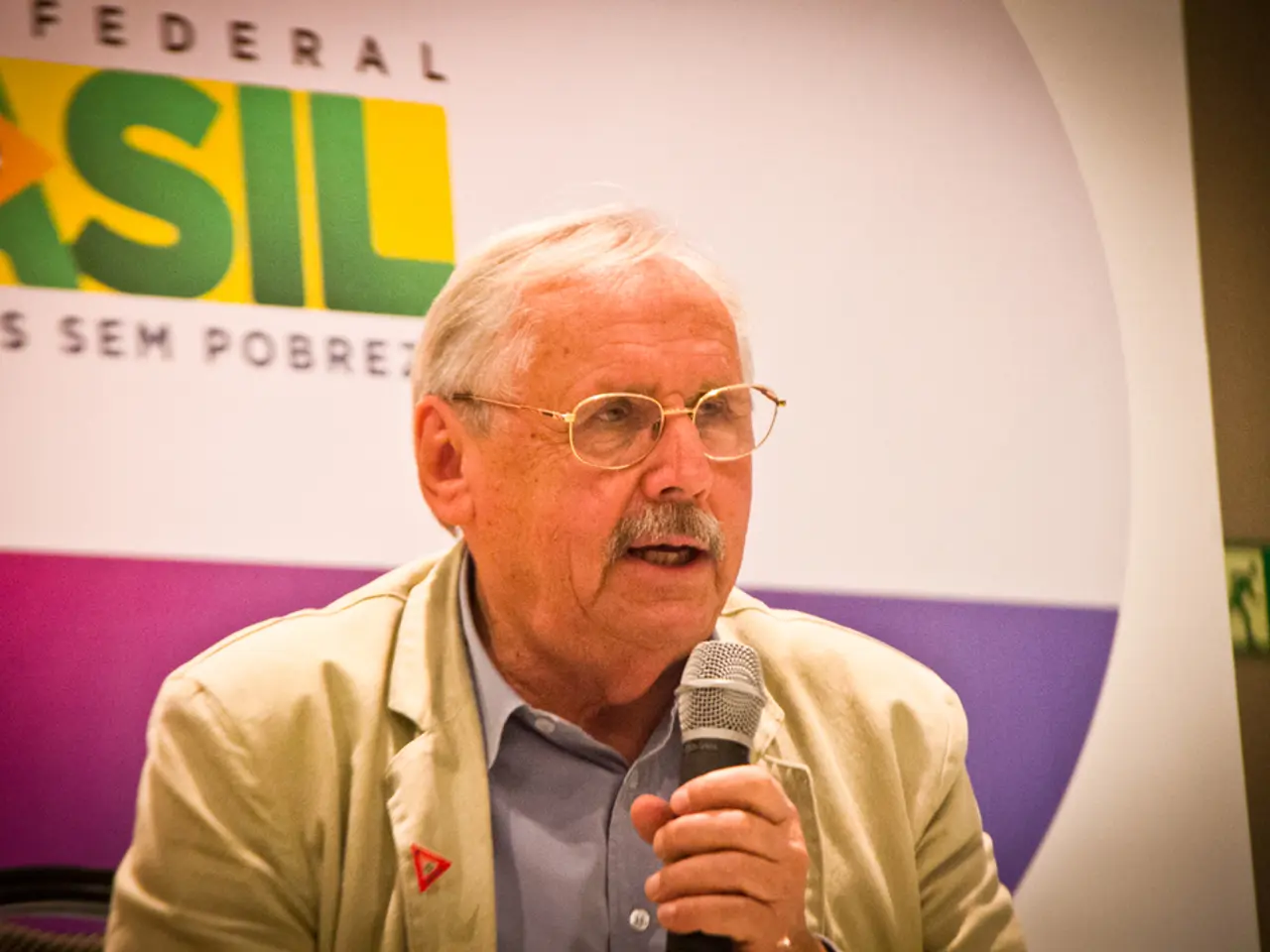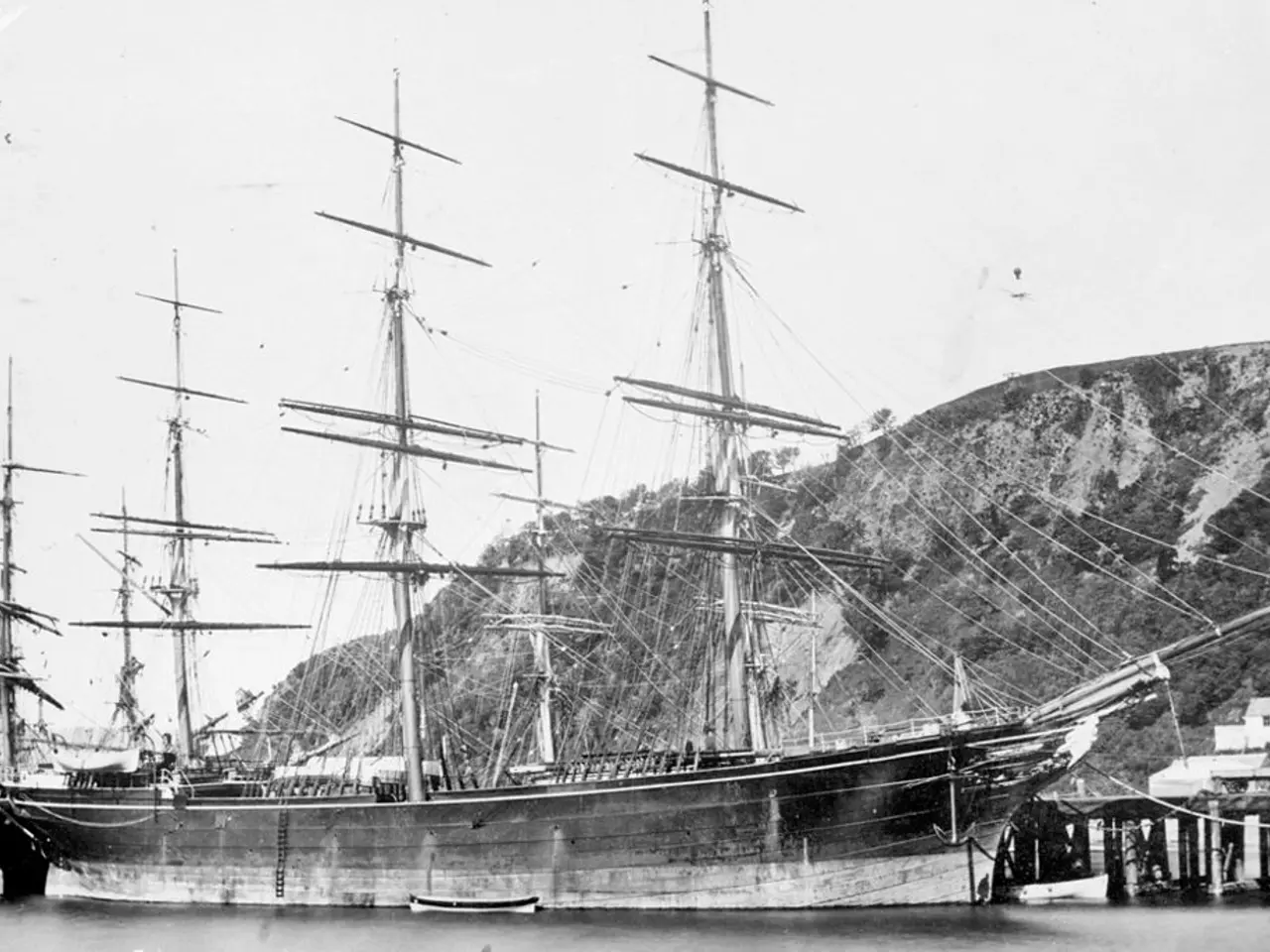Coordination with Scholz - Klingbeil in Key Role
In the midst of a polarizing political landscape, Germany's Social Democratic Party (SPD) finds itself embroiled in internal strife under the shadow of the conservative CDU/CSU, who narrowly won the February 2025 federal election. Former Chancellor Olaf Scholz and departing party chairwoman Saskia Esken offered conciliatory words to the party, while party leader Lars Klingbeil, bitter over his surprisingly weak re-election, was branded a "lightning rod" for discontent.
As the SPD conference continued in Berlin, the aftermath of Klingbeil's 64.9% result lingered, followed by the 95% approval of co-party leader Barbara Bas and 90.8% vote for general secretary Tim Klußendorf.
Scholz's Parting Words
Promising to remain committed to social democratic politics, Scholz mused on standing out from former chancellors by avoiding provocations, much like the strained relationship Gerhard Schröder has with the party due to his ties to Russian dictator Vladimir Putin. Scholz expressed a desire to participate in the debate on his new role, with the central theme of respect and the rise of right-wing populism in wealthy countries being the core focus.
Esken's Call for Unity
Esken announced her departure from the party leadership, urging the SPD to unite as they had in the past to secure their success. Though she did not secure a cabinet post in the SPD's post-election personnel carousel, she extended warm thanks to Scholz, appreciating him as her chancellor and their joint accomplishments.
Slap in the Face for Klingbeil
The slap in the face Klingbeil received in the chair election was acknowledged by treasurer Dietmar Nietan. He emphasized the responsibility of voicing criticisms openly rather than passive-aggressively in secluded votes, as happened with Klingbeil. However, the party conference management cut the debate short, and over 35 speeches were canceled.
Although no SPD chairperson had ever received such a poor election result without a challenger, some attribute this to dissatisfaction with Klingbeil's coalition with the Union, as well as the concentration of power among the vice-chancellor, finance minister, and SPD chairperson.
Klingbeil himself recognized the challenges that came with his position, acknowledging that some were unhappy with the coalition and his push for generational change within the party leadership. He admitted to knowing that the result would be difficult and that he might be the "lightning rod" for party dissent.
Defense Minister Boris Pistorius offered hope, assuring Klingbeil that within a year, perhaps even sooner, the conversation about the election would fade, as is characteristic of the social democrats.
Miersch on Coalition Compromises
The coalition with the Union presents the SPD faction with painful compromises, such as the restriction of family reunification for refugees with limited protection status, which the party recently approved. Faction leader Matthias Miersch urged the party to acknowledge and accept these compromises as they are outlined in the coalition agreement.
15 Euro Minimum Wage Discourse
The SPD reiterated its demand for a 15 Euro minimum wage, only to face resistance from Labor Minister Barbara Bas, who indicated her intention to adhere to the vote of the Minimum Wage Commission for 14.60 Euros.
The Future of Bundeswehr
A heated debate on foreign and security policy was slated for the Saturday evening session, during which the SPD aimed to define its course in light of escalating threats, including those from Russia, and even reconsider conscription. Scholz warned against naive optimism regarding Putin's intentions, and suggested that the wealthy should contribute more to defense capabilities.
Guest speaker Özgür Özel, the Turkish CHP chairman, appealed to Germany to support opposition parties in his country, which faces repression. The CHP, the sister party of the SPD, unanimously passed a resolution demanding the immediate release of political prisoners in Turkey, including the Istanbul mayor Ekrem İmamoğlu.
Scholz emphasized the importance of maintaining respect and avoiding provocative actions, as he plans to participate in the debate on his new role within the social democratic policy-and-legislation, with a focus on the rise of right-wing populism in wealthy countries.
Esken highlighted the vital need for unity within the SPD, drawing parallels to past instances where the party came together to secure its success, amidst the ongoing political drama in general-news.
